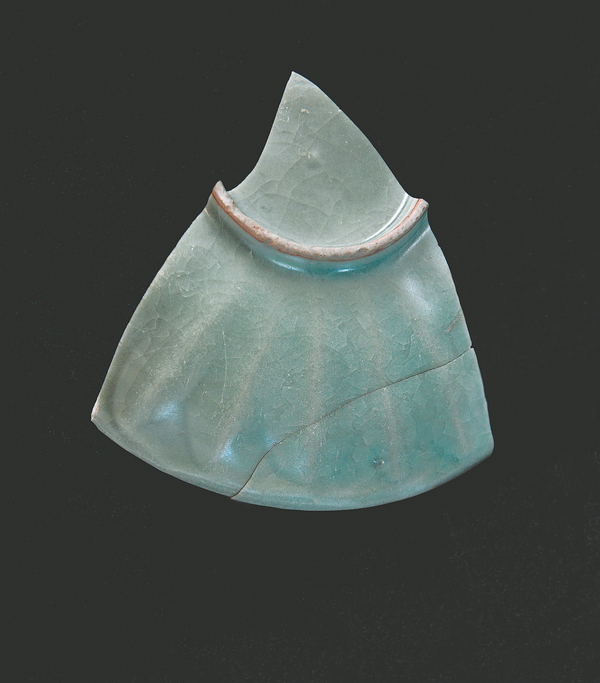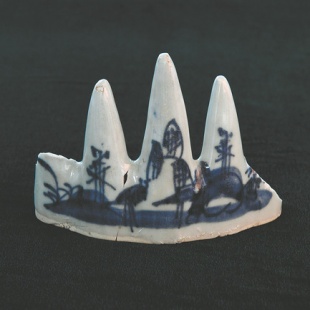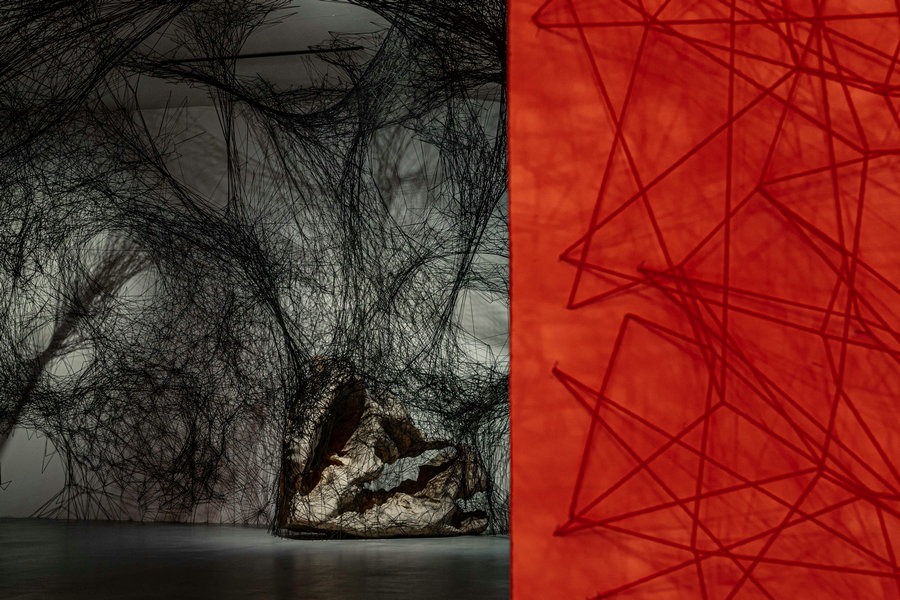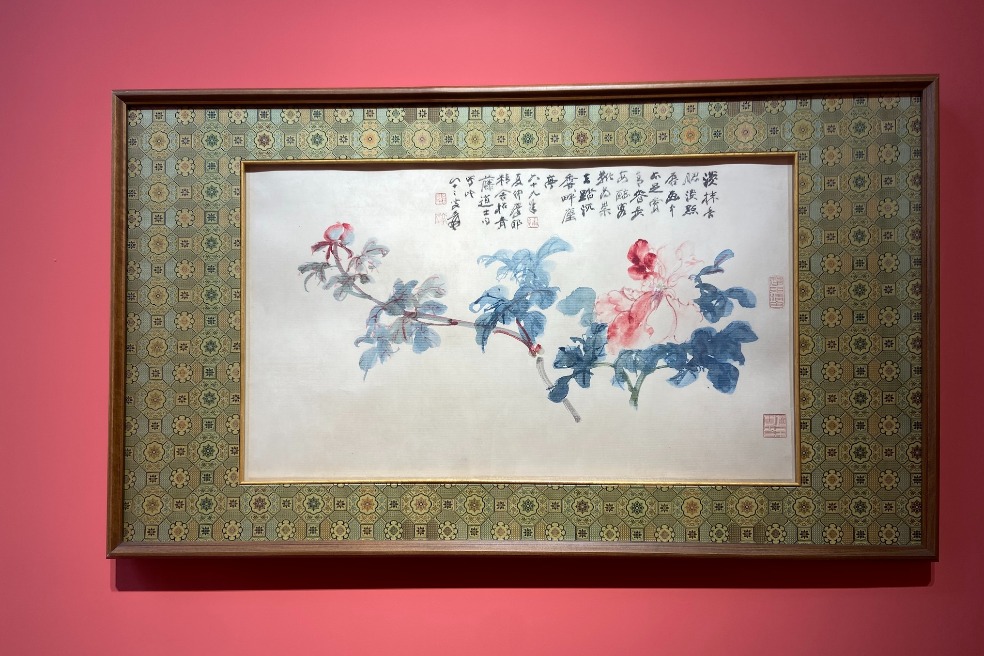Digging up a gateway to history

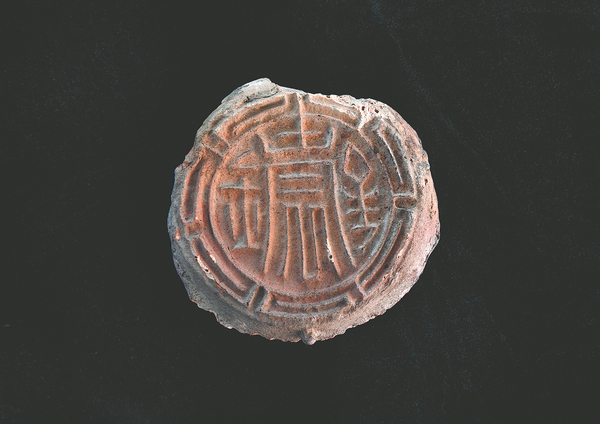
An ancient walled city recently unearthed in Dongguan, Guangdong province, offers further proof that the metropolis, located at the mouth of the Pearl River, was an important coastal defense town and node on the ancient Maritime Silk Road during the Ming Dynasty (1368-1644).
Cao Jing, director of the Guangdong Provincial Institute of Cultural Relics and Archaeology, said that the walled city, which is over 600 years old, covers an area of more than 3,000 square meters, and many artifacts have been found on the site, which is located in urban Dongguan.
It is among the largest single archaeological project in Guangdong in recent years.
Cao said the remains date from the Song Dynasty (960-1279) to the early 20th century, and traces have been found as deep as 3 meters below the surface.
The city wall foundation, roads, drainage channels and other facilities of the Ming and Qing dynasties (1644-1911) have also been cleared, while important remains such as building foundations and domestic water wells have also been discovered, she said.
According to Cao, the overall condition of the city wall foundation is fairly good. It has a curved construction and about 100 meters have been cleared.
"Based on studies of the strata, building materials and nearby historical architecture, this section of the city wall should have been built during the Ming Dynasty," Cao said.
"According to Dongguan county annals from different dynasties, the wall was built by the commander of the Nanhai (South China Sea) Garrison, Chang Yi in 1384, and it was repaired and rebuilt multiple times during the Ming and Qing dynasties.
"Based on the findings, we have concluded that the wall should be the Nanhai Wei City Wall, or the South China Sea Garrison Wall, dating to the Ming Dynasty."
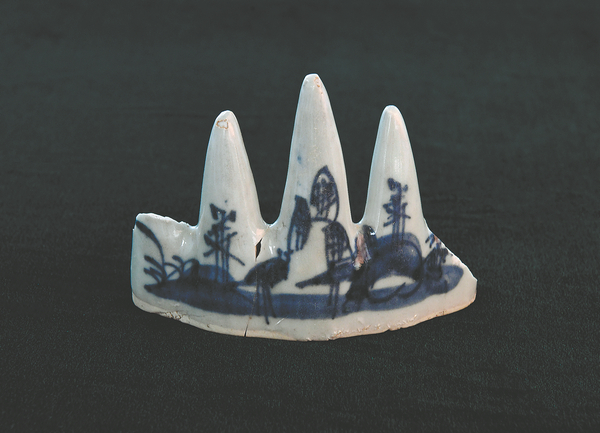
The word wei means fort and was the principal level of the three-layer Wei-Suo-Zhai (fortified village) system of military units set up in strategic locations along the frontiers during the Ming Dynasty, equivalent to a contemporary military garrison headquarters.
Cao said the excavation of the site has significant academic value.
"As the core fortress of three-level defense system of the Guangdong coastal defense system during the Ming Dynasty, Nanhai Wei performed the dual function of military command center and coastal defense outpost in Guangdong's mid-route coastal defense system."
Cao also said that the scientific disclosure of urban defense remains provides a glimpse of their spatial pattern and of Ming Dynasty construction regulations, an important advancement in the study of the Ming and Qing coastal defense system, adding that it is also of great significance for studies of the architectural and social history of the period.
Meanwhile, the discovery at the site of porcelain produced in notable kilns in southern China, including Qishi, Longquan, Jingdezhen, Jianyao and Baima, reflects the fact that Dongguan was an important transit and distribution center for domestic and foreign trade in the southern coastal area from the Song to the Ming and Qing dynasties.
Numerous architectural components and everyday objects dating from the Song Dynasty to the early 20th century have been unearthed, a total of 360 small pieces and 90 boxes of different fragments, Cao said, adding that this is testimony to the importance of Dongguan as a node on the Maritime Silk Road, and greatly supplements the study of ancient maritime and land transportation and trade history.
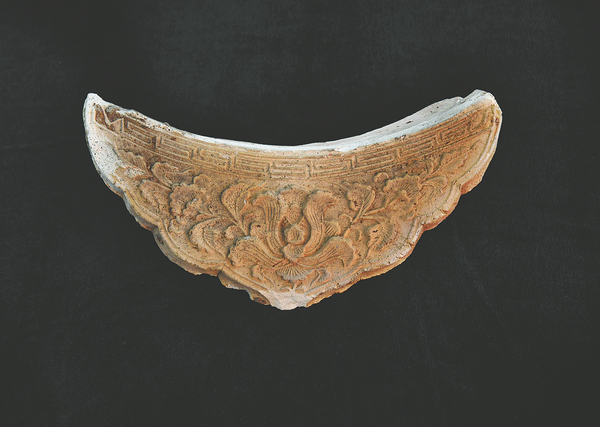
The excavation was undertaken between May and December last year.
Wu Yiting, head of the Publicity Department of the Dongguan Committee of the Communist Party of China, said that when the Nanhai Wei City Wall site was found, the city government immediately canceled an urban infrastructure project to continue excavations and protect cultural heritage from damage.
Archaeological discoveries have confirmed the importance of Dongguan as the "first gateway to Guangdong province" in the South China Sea coastal defense system during the Ming Dynasty, and its illustration of the construction and urban development of Dongguan possesses significant historical, cultural and academic value.
zhengcaixiong@chinadaily.com.cn
